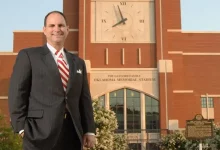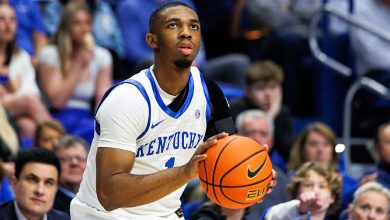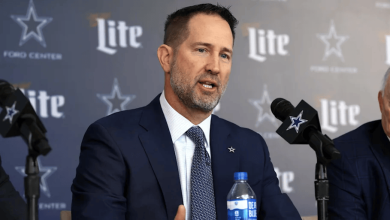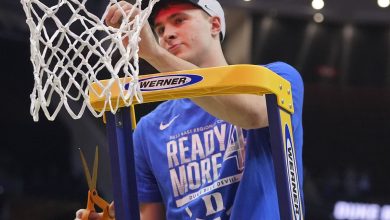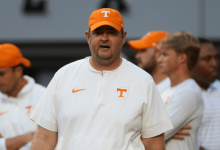How the Oilers’ Defense Has Risen to the Challenge Without Mattias Ekholm
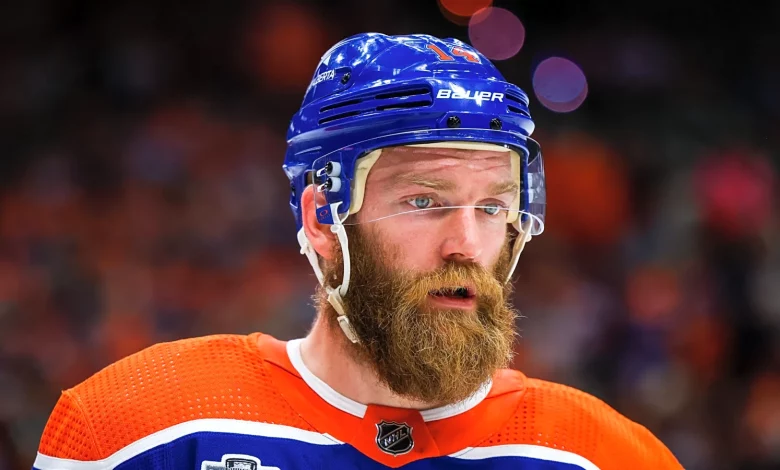
The Edmonton Oilers entered the current NHL season with a considerable question mark hovering over their blue line. The absence of veteran defenseman Mattias Ekholm, a key acquisition expected to solidify the Oilers’ defensive corps, could have left a gaping hole in the team’s lineup. However, through resilience, strategic adjustments, and the emergence of other defensive players, the Oilers’ defense has stepped up impressively, demonstrating that the team can weather adversity and remain competitive.
This article explores the impact of Ekholm’s absence, how the Oilers’ defense has adjusted, key contributors who have risen to the occasion, and what this means for the team’s future.
Mattias Ekholm’s Role and Impact
Mattias Ekholm arrived in Edmonton with high expectations. A reliable two-way defenseman known for his strong positional play, puck-moving ability, and shutdown skills, Ekholm was anticipated to be a cornerstone of the Oilers’ defense. His presence was expected to bring balance alongside the offensive firepower of forwards like Connor McDavid and Leon Draisaitl.
Ekholm’s ability to log heavy minutes against opposing top lines and quarterback the penalty kill made him a valuable asset. His physicality and smart defensive reads contributed to limiting scoring chances against, a critical factor for a team striving to advance deep into the playoffs.
When Ekholm’s injury sidelined him, many analysts and fans wondered if the Oilers’ defensive stability would crumble, especially given the team’s historical struggles with consistent defensive performance.
Initial Concerns: Can the Oilers’ Defense Hold Up?
Ekholm’s absence was a significant blow on paper. Losing a player of his caliber meant the Oilers had to adjust quickly, either by relying on existing defensemen to elevate their game or by bringing in new players to fill the void. The challenge was amplified by the fact that the Oilers’ defensive group had some question marks heading into the season, including younger, less experienced players and others coming off injury.
The concern wasn’t unfounded — defense often requires chemistry, communication, and experience, especially when protecting elite offensive talents like McDavid and Draisaitl. Without Ekholm, the Oilers faced increased pressure to ensure their defensive structure remained sound, or risk undermining the team’s offensive strengths.
Step-Up Performances: Who Filled the Gap?
Remarkably, several Oilers defensemen rose to the challenge, stepping into larger roles and proving capable of handling increased responsibilities.
1. Cody Ceci’s Veteran Presence
Cody Ceci, signed by the Oilers in the offseason, was initially viewed as a depth signing. However, with Ekholm out, Ceci’s importance skyrocketed. Known for his physical style and steady defensive play, Ceci embraced his expanded role, logging more minutes against tough competition.
His ability to win battles along the boards, block shots, and contribute to penalty killing made him a stabilizing force. Ceci’s willingness to step into the spotlight without hesitation has been a key factor in the Oilers’ defensive resilience.
2. Philip Broberg’s Growth
Young defenseman Philip Broberg has shown significant growth. Known for his speed and puck-moving ability, Broberg was thrust into more prominent minutes than initially expected. His offensive instincts combined with improving defensive awareness have allowed him to contribute effectively both at even strength and on special teams.
Broberg’s ability to quickly transition the puck out of the defensive zone has helped the Oilers maintain offensive momentum, compensating somewhat for the defensive challenges posed by Ekholm’s absence.
3. Tyson Barrie’s Offensive Support
Tyson Barrie continues to be a critical part of the Oilers’ blue line. While primarily known for his offensive contributions, Barrie has worked hard on his defensive zone coverage to prevent lapses. His experience and vision help in quarterbacking the power play, allowing the Oilers to capitalize on man-advantage situations.
Barrie’s leadership on the ice has been invaluable, especially in guiding younger defensemen through the pressure of increased ice time.
Strategic Adjustments by the Coaching Staff
The Oilers’ coaching staff, led by head coach Jay Woodcroft, deserves credit for managing this adversity. They adjusted defensive pairings and systems to maximize the strengths of available players and minimize weaknesses.
Key strategies included:
- Matching Defensive Pairings: Pairing more experienced defensemen with younger players to balance energy, skill, and communication.
- Simplified Zone Coverage: Implementing defensive systems emphasizing positioning and zone coverage over risky puck movement in the defensive zone.
- Active Penalty Kill: Adjusting the penalty kill to focus on aggressive puck pursuit and blocking passing lanes, reducing the reliance on Ekholm’s shutdown skills.
These tactical moves have helped the Oilers’ defense stay organized and effective despite personnel challenges.
Statistical Evidence of Defensive Improvement
The Oilers’ defensive metrics paint a promising picture since Ekholm’s injury:
- Reduction in Goals Against: The team’s goals against average has improved compared to early-season expectations.
- Shot Suppression: The Oilers have been more successful at limiting high-danger scoring chances against.
- Penalty Kill Efficiency: The penalty kill percentage has stabilized, showcasing better defensive execution.
While these numbers don’t tell the entire story, they reflect tangible improvements that correlate with the step-up performances of the defensemen filling in for Ekholm.
The Importance of Team Defense
Another critical factor is how the entire Oilers team has embraced a collective defensive responsibility. Forwards have been active in backchecking, and the team’s defensive zone coverage as a whole has improved. This collective effort reduces pressure on the blue line and helps compensate for individual absences.
Players like McDavid and Draisaitl, often criticized for not contributing enough defensively, have shown greater engagement in the defensive process, setting a tone for the team.
What This Means for the Oilers’ Future
The Oilers’ defense stepping up without Ekholm has positive implications moving forward:
- Depth Confidence: The team now has greater confidence in its defensive depth, a crucial factor for enduring long NHL seasons and playoff runs.
- Young Player Development: Young defensemen gaining valuable experience under pressure will benefit the team in future seasons.
- Flexibility in Roster Moves: With multiple capable defensemen, management can explore strategic trades or free-agent signings without panic.
When Ekholm returns, the Oilers could have one of the more balanced and versatile defensive corps in the league.
Remaining Challenges and Areas for Improvement
Despite progress, challenges remain. The Oilers still need to:
- Maintain Consistency: Defensive performance can fluctuate, and sustained focus will be key.
- Manage Injuries: Keeping key defensemen healthy is always a challenge.
- Enhance Physicality: The team needs to assert more physical dominance to complement their skill.
Addressing these areas will be critical as the Oilers aim to make a deep playoff push.
Mattias Ekholm’s absence was initially a daunting challenge for the Edmonton Oilers, but the team’s defense has risen impressively to the occasion. Through standout performances from players like Cody Ceci, Philip Broberg, and Tyson Barrie, combined with smart coaching adjustments and a team-wide commitment to defense, the Oilers have maintained defensive stability and even improved in key areas.
This resilience not only keeps the Oilers competitive now but also bodes well for their future as they build a well-rounded team capable of contending for the Stanley Cup. While the return of Ekholm will undoubtedly bolster the defense, the experience gained by others in his absence ensures Edmonton is not reliant on any one player.
The Oilers’ defense without Ekholm is a testament to teamwork, adaptability, and the depth that modern NHL teams must cultivate to succeed.

